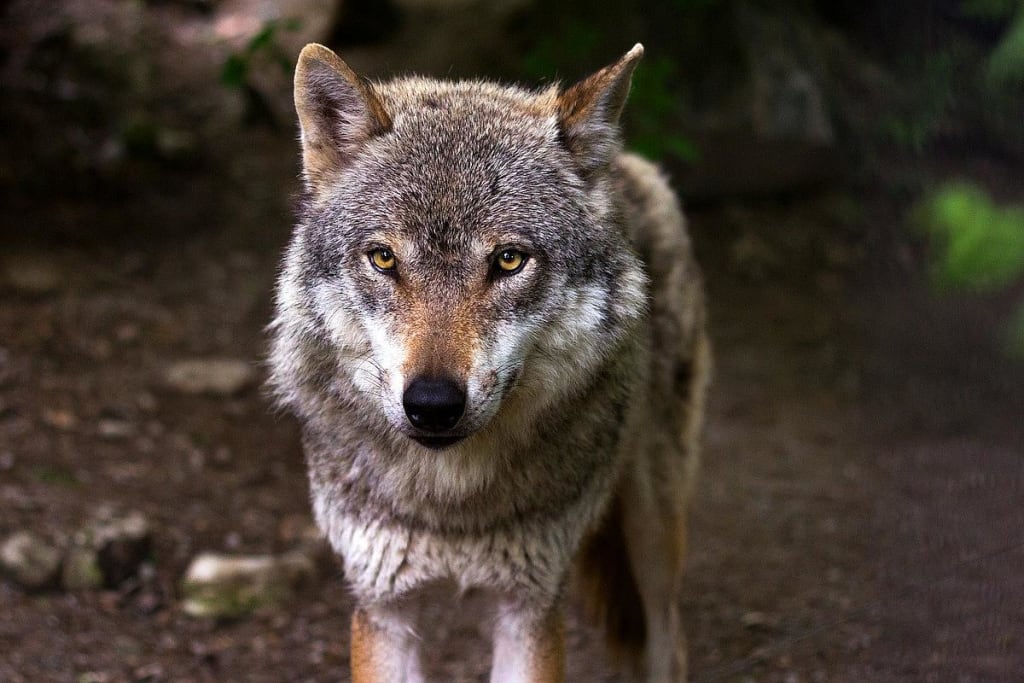What do you know about wolves?
What goes through your head when you hear the word wolf?

I will tell you what I was thinking for the first time when I heard the word. I pictured this terrifying animal, big claws, sharp teeth, ready to break you limb by limb. After someone told me that the dogs we love so much are actually coming from wolves, so I started wondering... If a dog can be so cute and lovable, why people are doing everything they can to run away from their ancestor, the big, bad grey wolf. If you ask yourself the same question keep reading, you may find it interesting!
The wolf (Canis lupus), also known as the grey wolf, is a large canine native to Eurasia and North America. Of all members of the genus Canis, the wolf is most specialized for cooperative game hunting as demonstrated by its physical adaptations to tackling large prey, its more social nature, and its highly advanced expressive behavior.
The global wild wolf population was estimated to be 300,000 in 2003 and is considered to be of The Least concern by the International Union for Conservation of Nature (IUCN). Wolves have a long history of interactions with humans, having been despised and hunted in most pastoral communities because of their attacks on livestock, while conversely being respected in some agrarian and hunter-gatherer societies. Although the fear of wolves exists in many human societies, the majority of recorded attacks on people have been attributed to animals suffering from rabies. Wolf attacks on humans are rare because wolves are relatively few, live away from people, and have developed a fear of humans because of their experiences with hunters, ranchers, and shepherds.
Canis is the Latin word meaning "dog", and under this genus, he listed the doglike carnivores including domestic dogs, wolves, and jackals. The wolf is a common motif in the mythologies and cosmologies of peoples throughout its historical range. The Ancient Greeks associated wolves with Apollo, the god of light and order. The Ancient Romans connected the wolf with their god of war and agriculture Mars and believed their city's founders, Romulus and Remus.
How dangerous are they for humans?
Wolf attacks are injuries to humans or their property by any subspecies of wolves. Their frequency varies with geographical location and historical period. Gray wolf attacks are rare because wolves are often subsequently killed, or even extirpated in the reaction by human beings. As a result, wolves today tend to live mostly far from people or have developed the tendency and ability to avoid them. Attacks whose victims had been threatening, disciplining, disturbing, teasing, or annoying attacking wolves, their pups, families, or packs are classified as "provoked", "defensive" or "disciplinary". The attackers in such cases seem motivated, not by hunger, but fear or anger and the need to escape from or drive the victim away. Examples would include a captive wolf attacking an abusive handler; a mother wolf attacking a hiker who had wandered near her pups; an attack on a wolf hunter in active pursuit; or a wildlife photographer, park visitor, or field biologist who had got too close for the wolf's comfort. While such attacks may still be dangerous, they tend to be limited to quick bites and not pressed. Unprovoked wolf attacks motivated by hunger are categorized as "predatory". In some such cases, a cautious wolf may launch "investigative" or "exploratory" attacks to test the victim for suitability as prey. As with defensive attacks, such attacks are not always pressed, as the animal may break off the attack or be convinced to look elsewhere for its next meal.






Comments
There are no comments for this story
Be the first to respond and start the conversation.